Floyd Bonner, 64, believes in accountability. While discussing public safety with the Memphis Flyer and MLK50: Justice Through Journalism, the two-term sheriff spoke often of the importance of people being held accountable — parents, youth, gun toters. Yet the Orange Mound native seemed to resist the idea that he or his department’s policies might have some responsibility for the 44 inmate deaths that have occurred since he took office in 2018, calling any attribution “a very unfair portrayal of the hard-working men of the sheriff’s office and our jailers.”
That comment and Bonner’s campaign reflect his deep commitment to law enforcement workers and policing ideals. He didn’t criticize Memphis Police Chief Cerelyn “C.J.” Davis; his most specific answers were about increasing the number of police officers (he’d like a larger sheriff’s force, too); he’d like to see longer sentences and tougher laws; he embraces the idea of curfews for youth. Still, the married father of two sons also believes the personal touch can be a route to crime prevention and intervention. If elected, he says, he’ll be out in the streets, talking to youth. “We can’t sit in the office and let parents or kids come to us,” he says. “We’ve got to get out in the neighborhoods to find out what we can do to help these kids be successful.”
The following Q&A has been edited for brevity and clarity. This interview was conducted on Aug. 21, 2023.
The killing of Tyre Nichols at the hands of Memphis police officers obviously damaged the community’s trust in the police. What steps would you take to rebuild that trust?
Well, I think I agree with you — it damaged the trust with the community. I do not support a bad police officer, would not support a bad police officer. But it’s about being out in the community, talking with the public, getting them to understand what happened, how it happened, and how we can work collectively to keep it from happening again. And so I think being accessible to the public, where they can actually ask one-on-one questions, and not always hashing it out through the media, but just being out there. So as sheriff, I’ve done that, and we’ll continue to do it.
How would you describe Cerelyn “C.J.” Davis’ performance as police chief?
Well, I think Chief Davis has had to learn the community and had to learn her agency. You know, I’ve been asked many times would I let her go if I was elected. I don’t think that’s fair. I think all city directors will be evaluated in my administration, and decisions will be made accordingly.
Was [her performance] worth an extra $50,000? (Davis received a sizable raise when a blanket pay increase for all MPD employees went into effect earlier this year.)
Well, that didn’t fall on my purview. I don’t know what the intention was to give her the extra $50,000. It was a 15 percent raise, so that’s what it equated to. So, I think that someone probably should have looked at the command staff, and I think it [the raise] was more for recruiting and frontline officers.
MPD has about 1,900 officers but says it needs 2,500. Do you agree 2,500 is the right number? If not, why not? And if so, how would you help add MPD officers?
I have 42 years experience. How would I go about doing our desk-to-duty plan? It’s taking some officers out of precincts, [taking] officers out of the public information office, and getting those officers back out on the streets. We have officers doing tasks that civilians could be doing — for instance, like fixing the SkyCop cameras.
In lieu of those officers out on patrol, it’s going to take two to three years to get to where the staffing levels need to be right now. We can’t wait that long. We don’t need the next mayor to need to have two to three years’ on-the-job training, trying to figure that out. So when you start talking about increasing the staffing levels, yes, desk to duty. But we can also do a better job in recruiting; you know, we need to look at states that have state income taxes or a high cost of living and entice those officers to move here to Memphis. We’ve got to do a better job of selling our city; we’ve got to work harder. Even when you start talking about our ad campaign, you know, the Best in Blue campaign has been around now for five or six years. It needs to be freshened up. We need to take a different approach, getting a professional management company to do those types of things for us. Let the professionals do what the professionals do.
Your proposed desk-to-duty transfer: How many people would that be?
We just have to take an overall look at the department, but we think it could be anywhere between 50 to 75 officers that we could actually put back out on the streets.
What would you say is the ideal number for the police force?
About 2,500 or 2,600.
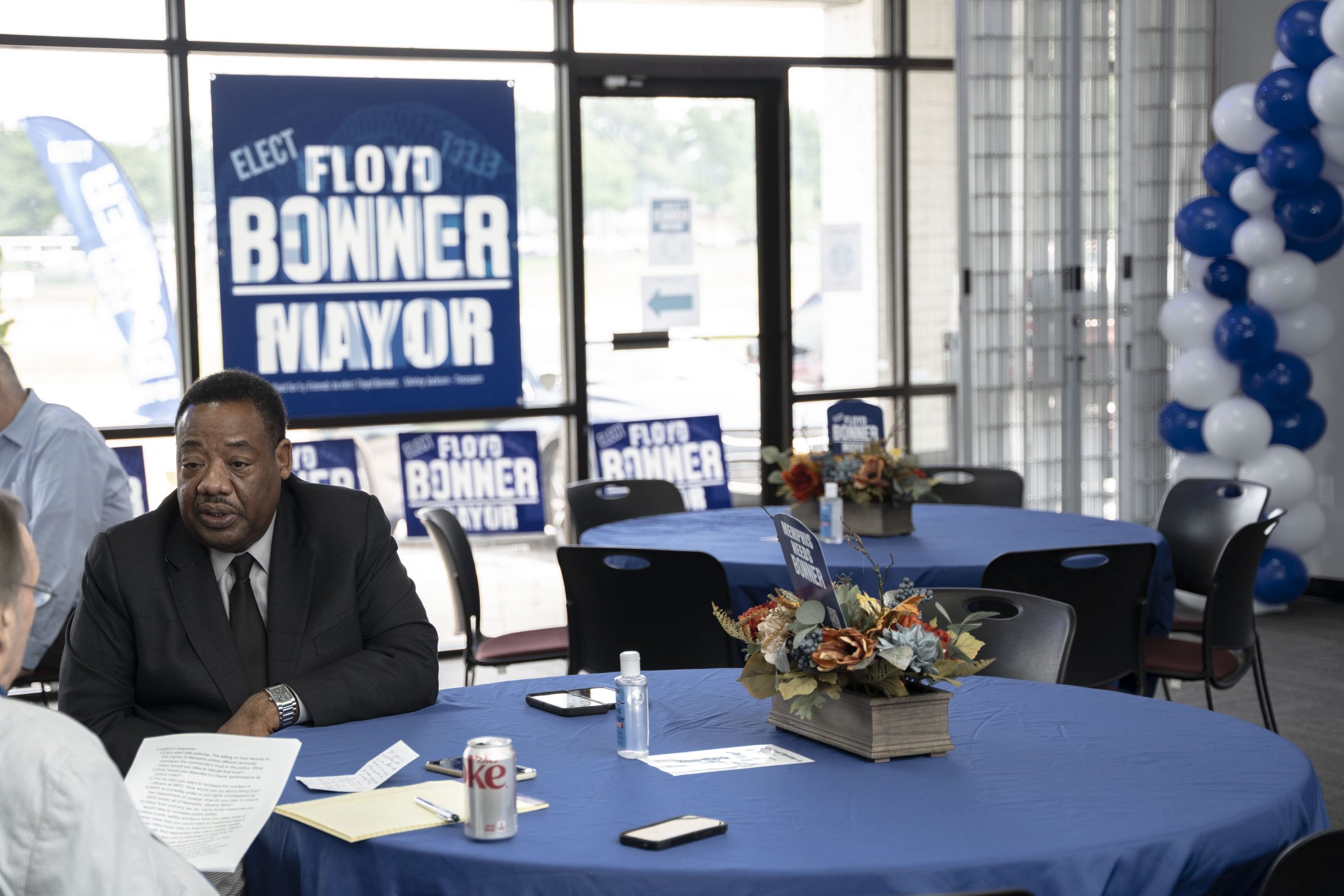
Currently, nearly 40 percent of the city of Memphis’ budget goes to police. Should residents expect that, under your administration, that share would go up, down, or stay the same?
We know that here in a couple of years, there’ll be a $50 million debt cliff* that will be re-occurring. So you know, there is money that will be coming to the city coffers to do different programs. Right now, even with the budget the way it is, you know, our police need more cars. We’re having officers that are having to wait for cars to come in so they can go out. So it’s some things in the police department that we need to fix. And right now, I can’t say that the budget would increase, but it’s certainly nice to stay where it’s at.
(*Editor’s note: The City of Memphis’ debt payments will fall by around $50 million in 2026.)
MPD is currently under a civil rights investigation by the Department of Justice, as you know. How do you plan to ensure that the Memphis Police Department treats all citizens fairly, which is what they’re going to be looking at?
This starts with the leadership. It starts at the top. But I welcome the DOJ investigation or anything where you have an outside second set of eyes to take a look at an organization to see if we are doing things the right way, or the systemic type of actions that need to be taken. So, we welcome the investigation. Now, the public needs to keep in mind also that it could take two to three years for them to come up with findings. And so, again, the next mayor needs to understand those findings and know how to make the proper adjustments in the police department.
Other than policing, per se, can you name three measures you would take to increase public safety?
We can always talk about intervention, first of all, to curb crime, to keep it from happening in the first place. But also with prevention. We need to provide jobs for our people, for young people, especially meaningful jobs. We talk about opportunity to youth, including the programs that are already in existence with the city. But we’ve got to ramp up these chances to get our young people involved, and we’ve got to hold parents accountable. And for the 20 percent, the ones that are committing the crime, we’ve got to have tougher rules. When you talk about the average time that a person convicted of aggravated assault is only five to seven years, we’ve got a close-up on loopholes in truth in sentencing. An aggravated assault is just a murder that didn’t get to happen.
What public safety solutions have you seen work in other cities that you might seek to implement here?
Well, I just read an article just the other day about curfews, juvenile curfews in D.C., as well as in Baltimore. They’re implementing curfews. And I think we’re missing an opportunity as well to enforce the curfew laws. I think it’s something that we really need to revisit. Again, it’s about holding parents accountable for their kids.
Some cities have tried to respond to mental health crises with first responders who aren’t police officers. Is that a solution you’re interested in exploring for Memphis? And if so, how would you fund it?
Mental health is a big concern for our public; we just received $2.7 million for our private pilot program to work with a hospital to take detainees that are already in the jail to get them the mental health evaluations they need, not only to get through the court system, but to get mental health evaluations and, hopefully, on the right track with medication that doctors deem necessary.
How do you plan to engage young people to help them avoid gangs and criminal activity?
Well, it’s all about intervention and prevention. At the sheriff’s office, we have a Crime Prevention Unit that offers over 40 different programs for our youth, but as the mayor, the mayor has to be accessible to juveniles. I grew up in Orange Mound and Westwood; a lot of the kids that are getting in trouble look like me. I can relate to those kids. And I think it would help just being a visible mayor being out and about and trying to talk to these kids. We have the conversations with the kids that are excelling, but I mean, we got to have conversations with kids in the neighborhood.
Any particular plans for doing that on a regular basis?
We can’t sit in the office and let parents or kids come to us. We’ve got to get out in the neighborhoods to find out what we can do to help these kids be successful.
Memphis always ranks poorly in its number of roadway deaths. Is there a way to make our streets safer without relying solely on increased enforcement by police?
I think you look at what some cities are doing with their traffic plans or roundabouts that you’re starting to see just a little bit in Memphis. I have relatives that live in the suburbs in Annapolis, where they have that, for example. But you’ve seen a lot of roundabouts, now, traffic patterns, changing, you know, you increase traffic enforcement, attention to red lights and things like that. We’re gonna have to take a long hard look at traffic patterns.
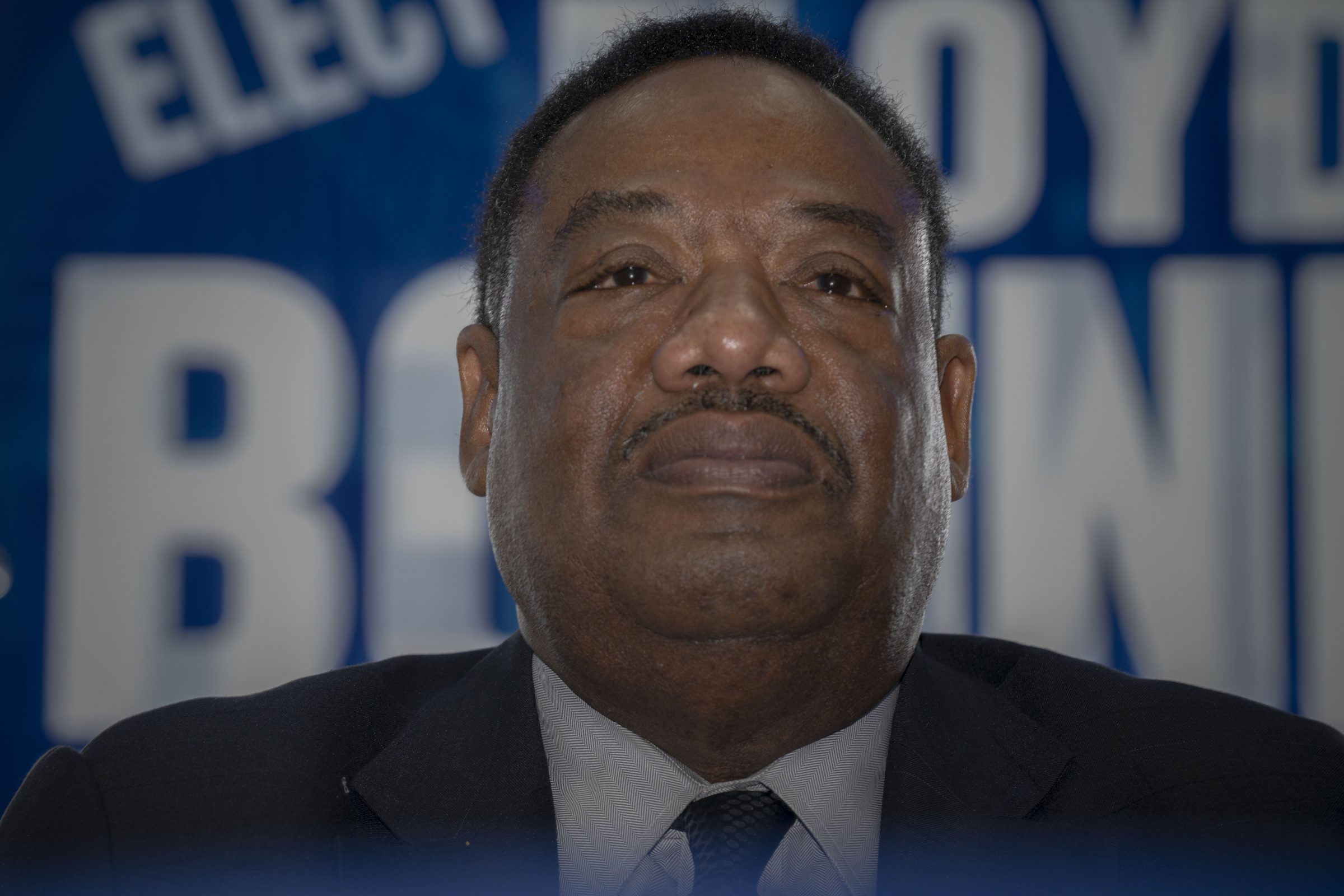
Give me a realistic change you can facilitate to help reduce car theft and property theft.
My wife and I’ve raised two sons in this community. We were responsible for their actions and where they were, but these young people that are out there that are breaking in cars, we’ve got to get down to the root problem of that. That could be a food issue, it could be a homeless issue. We’ve got to find out what those issues are, and then change the trajectory of those kids.
Are you one of those who blames the state legislature for worsening gun problems with legislation that’s passed up there?
I think it did. I mean, I’d sit at a table with Gov. [Bill] Lee and talk to him about constitutional carry and what it means to this community. Urban areas are different from rural areas. And I don’t think an urban area in the state of Tennessee was happy with the change in the law. We had a permit system that was working; I even suggested to the governor to give it to the citizens for free. What we were trying to get done is a mixture of background checks, going to classes, learning how to operate a handgun. And I keep reading reports where citizens are shooting themselves, saying that they were cleaning their weapon and, you know, the gun went off. When you look at the kind of things that have happened since they did away with the permit, I mean, we all can say gun violence is really going up here and in the state of Tennessee.
Now, that also happens because people are carrying guns in their cars, and they’re leaving guns in their car. So when we start talking about deaths from motor vehicles, most of the time it’s not the change that you might leave in your ashtray these kids and young people are looking for, it’s weapons, even though they can buy a weapon now because the state law has changed, to where an 18-year-old can buy a gun. But many of these guns are illegal weapons.
Well, the guns are here, they’re on the street. What’s your best idea for getting them off the street?
Aggressive policing first of all. We’ve got to hold people accountable. But also we’ve got to change the mindset whereby we don’t have conflict resolution anymore in schools or anywhere. I’m encouraged by what I’ve seen with the churches and pastors, community organizations that are willing to step up now and really get the message out as to how serious this is in our city. Because a lot of time our youth don’t understand the consequences of pulling the trigger on a weapon. So when you talk about trying to get them to get those guns out of their hands, then we’ve got to find a way to talk to them and get them to understand that violence is never the answer to anything, but also holding them, again, responsible and accountable for their actions.
You’ve mentioned your interest in a curfew. As specifically as possible, what kind of curfew would you imagine would work?
Well, the curfew that’s already on the books. But we gotta find those social services, agencies that would be willing to partner with us to handle juveniles. What you’re asking is for a parent or responsible person or guardian to come pick that child up. So many times I hear parents say, ‘Well, I didn’t know. I didn’t know where my child was. My child told me that they were at this place, and they actually wound up at this other place.’ So again, you know, it’s about holding parents accountable, holding juveniles accountable. I think getting young people off the streets late at night, especially in the Beale Street area, which as we all know, is an adult entertainment center. A 15-year-old don’t need to be down on Beale Street after midnight.
At the opening of your campaign headquarters, you said we’ve got to unhandcuff the police officers and let the police do what the police need to do. What does that mean?
Well, that means we’ve got to show support to the police. I think some of the ordinances that were passed in talking with MPD officers, they feel demoralized. They feel like they can’t police. They feel like they’re being restricted …
(Editor’s note: Among other things, the city council ordinance directs police not to stop cars for low-level offenses, bans the use of unmarked cars and plainclothes officers from routine traffic stops, and mandates regularly reported data on traffic stops, arrests, and complaints.)
By the restrictions on pre-emptive steps taken by the city council? Which are now being considered by the county, you know …
Yes, yes, I do know. But if you read the orders, the county is only requesting, they’re not telling me that I have to do that. But we need things in place that when those kinds of things [police-involved killings such as Tyre Nichols’] happen, and they should never happen, but you have policy and procedure as well as the law, and what we saw with the five officers that were involved with that Tyre Nichols thing. I was in a forum just last week with the Chamber; their description was ‘five rogue officers.’ So if you’re saying five rogue officers, you’re not saying the entire police department, but you must have policy and procedures. And we saw it work effectively, those officers were immediately fired. And now they’re going through the justice system.
The assistant U.S. attorney says that it has received information indicating that the MPD may be using an approach to street enforcement that can result in violations of federal law, including racially discriminatory stops of Black people for minor violations? I think a lot of people are curious about racial profiling, as well. Is that a real problem?
I don’t know if there’s a real problem. But when you talk about a city that’s 65 percent or 60 percent African-American, policing is about data, where the crime is occurring, when it’s occurring and not necessarily who’s committing it. But you try to put yourself in those places where crime is occurring. So I don’t necessarily think it’s racial profiling. But with that higher percentage of African Americans, there is the possibility that more African Americans are going to be arrested … People in South Memphis want to feel safe, just like people in East Memphis and Germantown want to feel safe. So you let the data lead you to where the crime has occurred.
There’s been a lot of concern about the number of jail deaths that have occurred during your tenure. Is it fair to attribute the rise in such deaths to policies in the sheriff’s department? And can the number be reduced?
Now, when you start talking about jail deaths, there are people who were charged with DUI, were involved in an accident, but never came to jail. They died in the hospital. People come to jail with heart conditions. A lot of times, the people that come to jail, they’re not in the healthiest condition in the first place. These people, maybe, have never seen a doctor before. We’ve had kidney issues, people dying in the hospital under medical supervision. But it triggers on our account because they were an inmate at the jail, and they did not make bond. I had a case where one person was dying of cancer. He was in the last stages of cancer. We all knew that he was going down, and we talked to the jury about releasing him. But he died of cancer at Methodist University. And so we get tagged again. I think it is unfair what other candidates are saying, what other media outlets are saying, because no one ever asked us to go into detail about what’s actually going on in the jail.
There are 244 jails in the state of Tennessee, and only 41 or 42 report jail deaths. We self report; we’re [in] a small percentage that do [report jail deaths]. I think even Congress said that the DOJ needed to do a better job with getting jail death reports from all around the country. We don’t try to hide anything.
(Editor’s note: The Commercial Appeal reported that it began asking the sheriff’s office to release details of deaths in custody in 2020, but that it was only after a change in state law in 2022 requiring records to be kept and available for the public that the office provided a list.)
A recently announced plan to control crime Downtown envisions the sheriff’s department joining MPD and maintaining a blockade of sorts on vehicular traffic on weekend nights. Did you personally sign off on that plan?
I talked with Chief Davis last week several times about it but no, I did not sign off on it. There’s some other things that need to be done because when you push the traffic out and you keep it away from Downtown, you see what happens. Last weekend, kids went to Union and Pauline and shut down two businesses, the Burger King as well as the Exxon right there, because it was a gathering spot. So we’ve got to do more than just protect Downtown. Downtown is the front door to our city. But there are other areas in town that we cannot forget about.
If you are elected mayor, to what extent would you welcome direct participation by the sheriff’s department in the activities of the MPD?
That’s another misconception by the public, that the sheriff’s office doesn’t work inside the city limits. I still have a narcotics unit that does probably 95 percent of their work inside the city limits. Our gang unit does probably 95 percent of their work inside the city limits. Every day, our Fugitive Apprehension team, they’re working inside the city limits of Memphis.
When you start talking about us doing more, we are doing a lot. We are a full-service law enforcement office; we have to respond to calls in unincorporated Shelby County, as well as serve in 54 courtrooms.
I wish I had a force of 1,500. I think if I’m elected as mayor, we need the highway patrol down here on a permanent basis. We need them to come down here and be a constant presence on all of our state routes as well as the interstates. We need constant partnering with everyone that’s available.
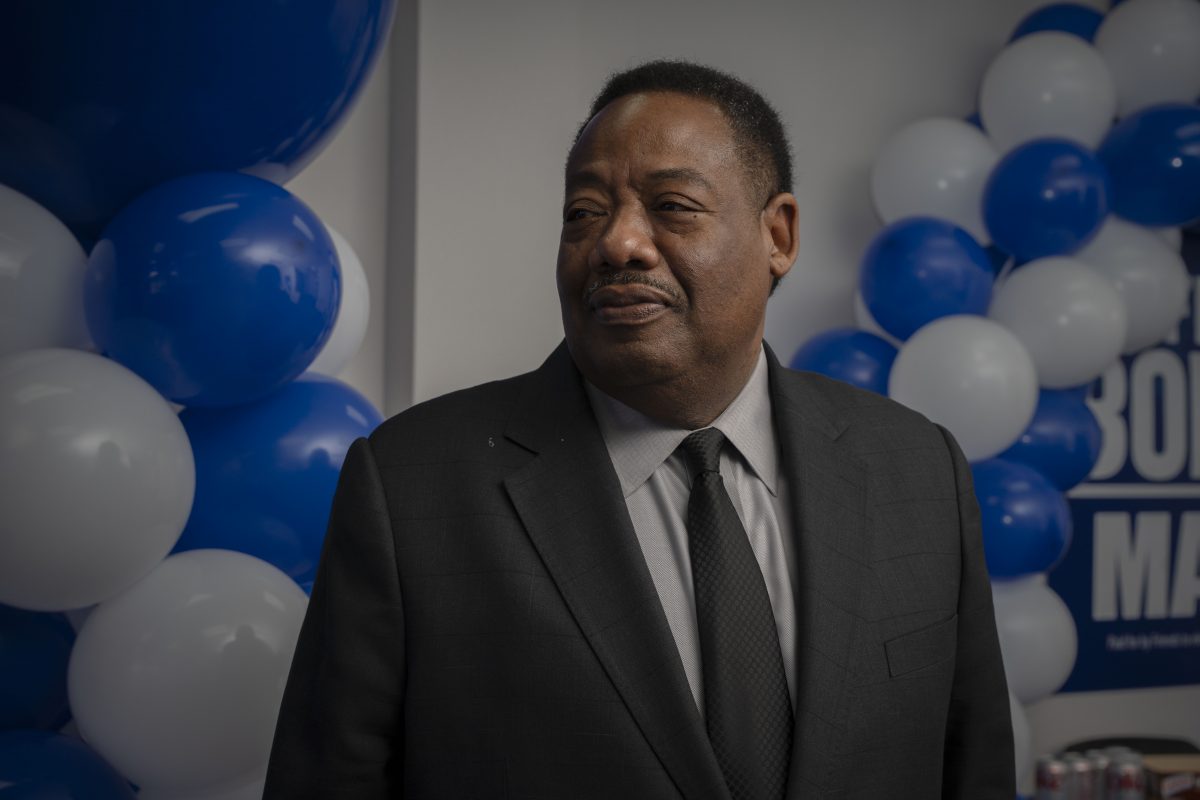

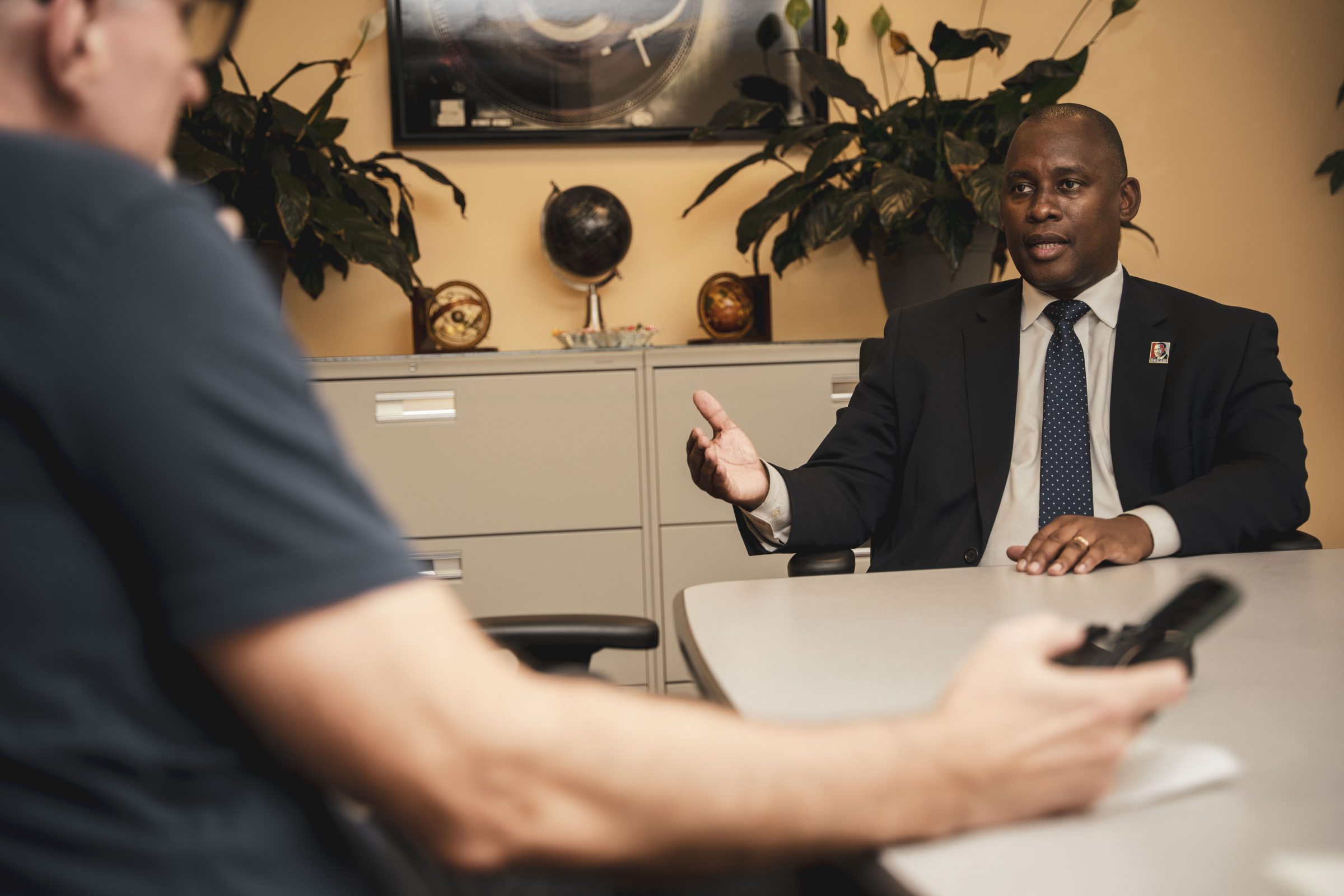

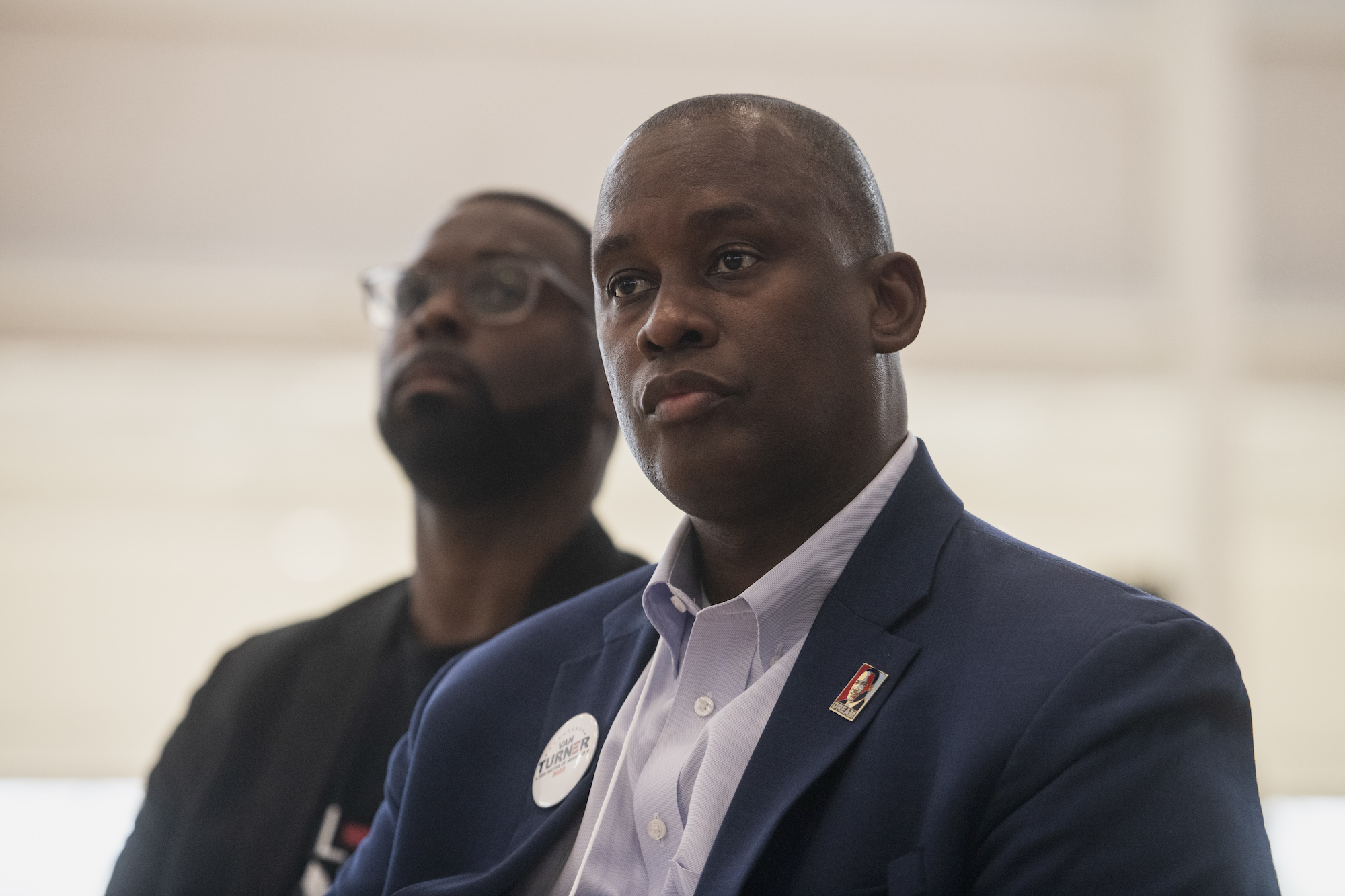


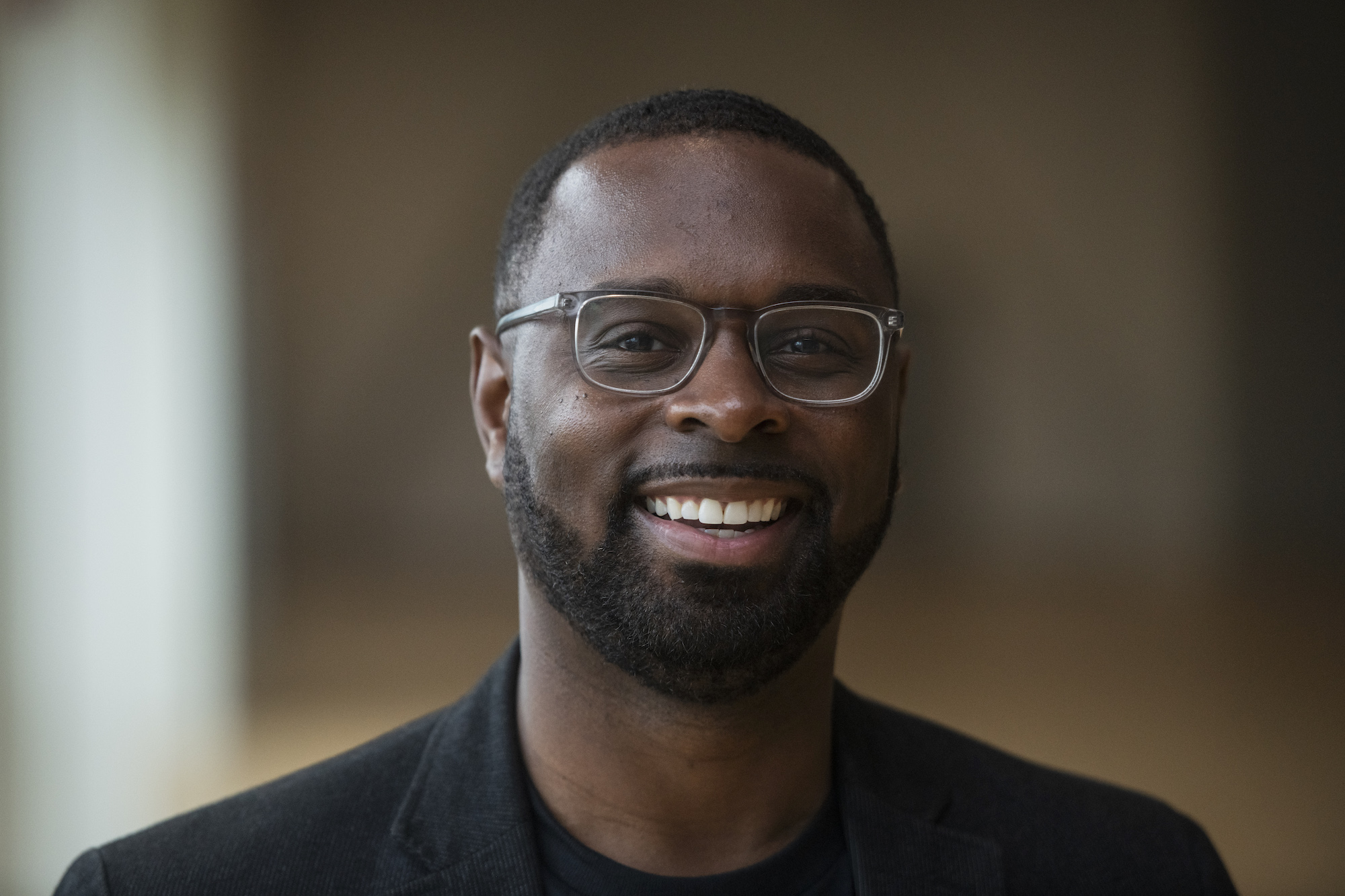
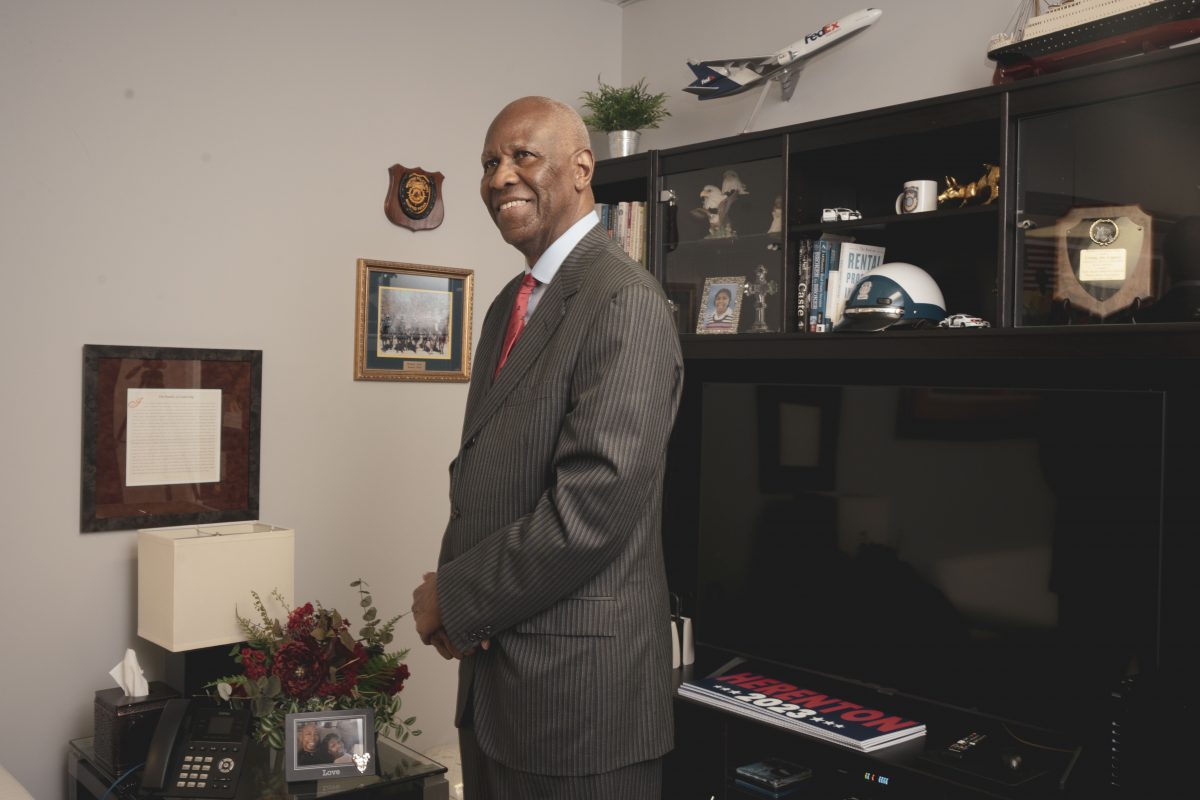


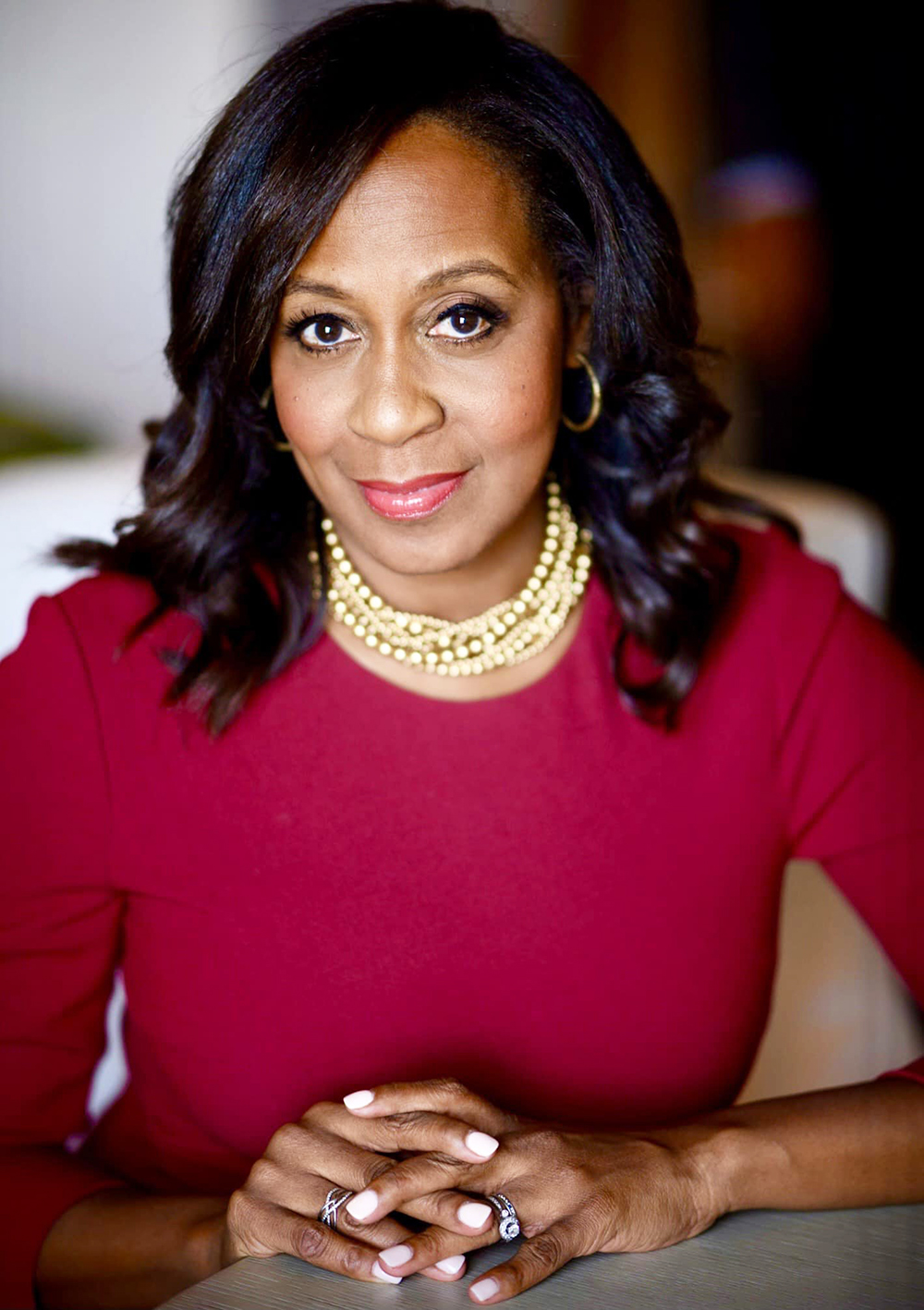


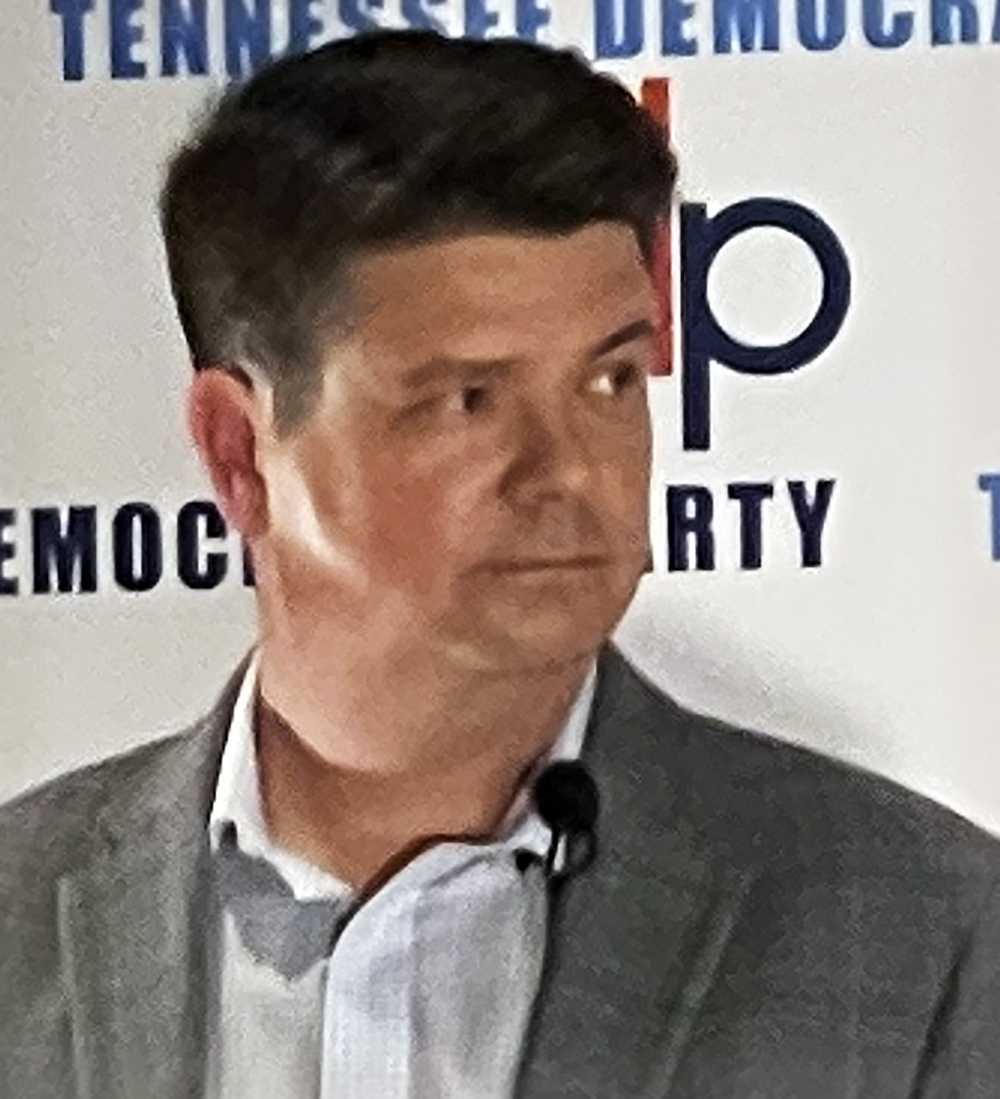
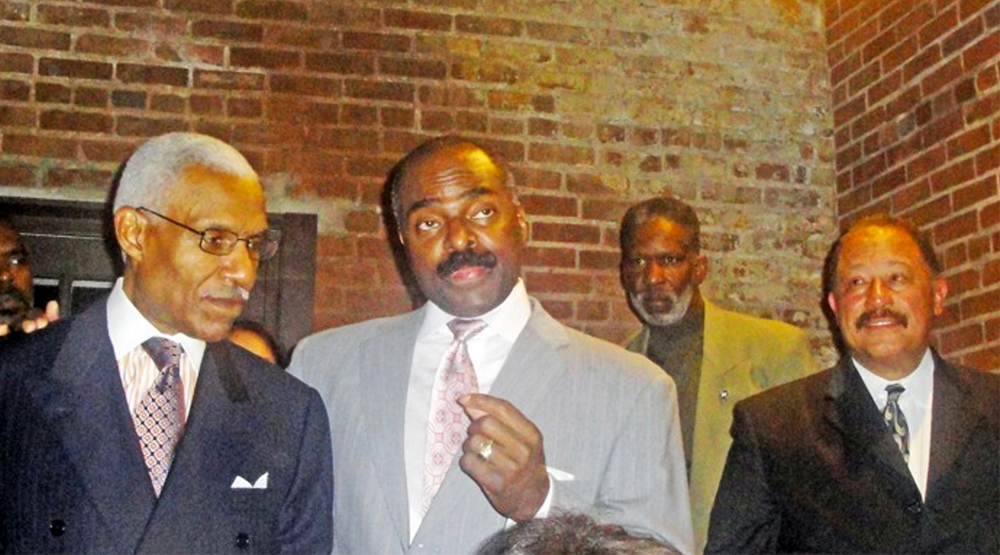

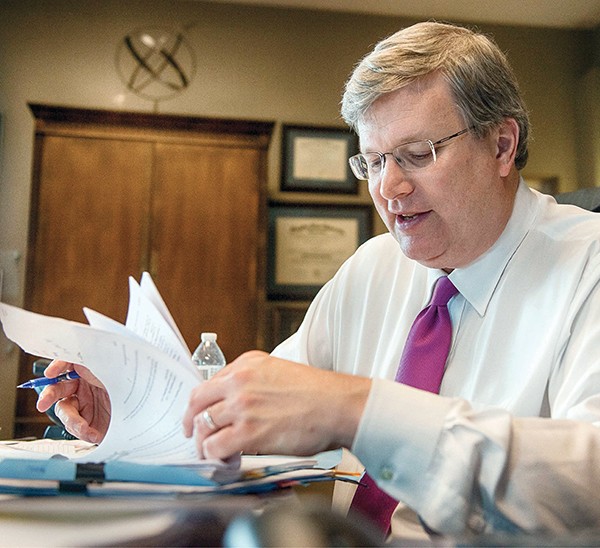 Brandon Dill
Brandon Dill 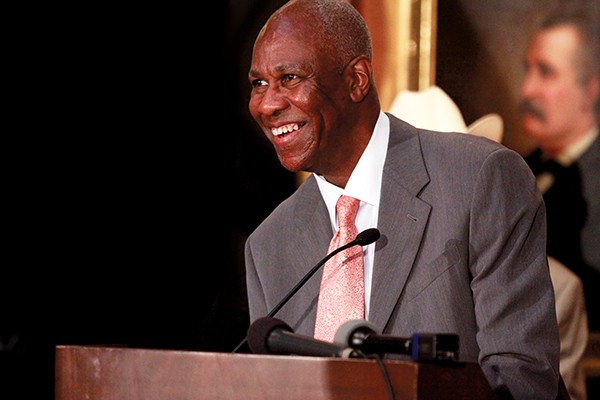 Justin Fox Burks
Justin Fox Burks 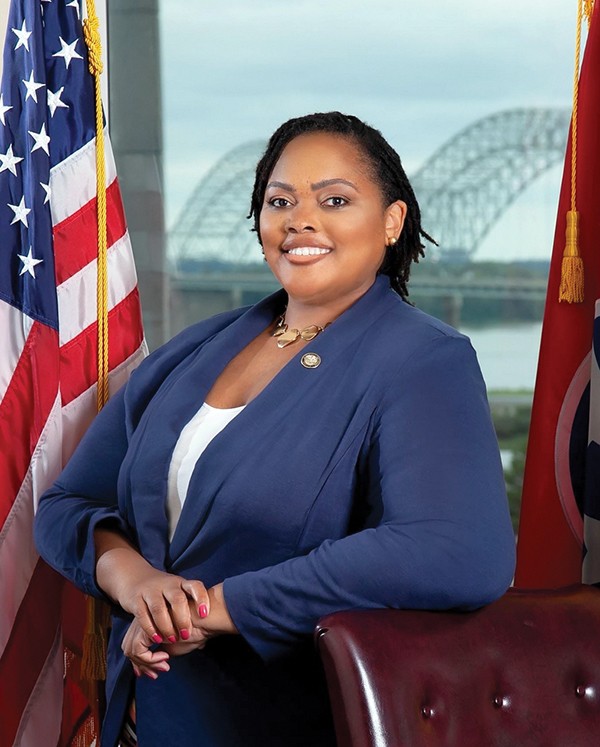
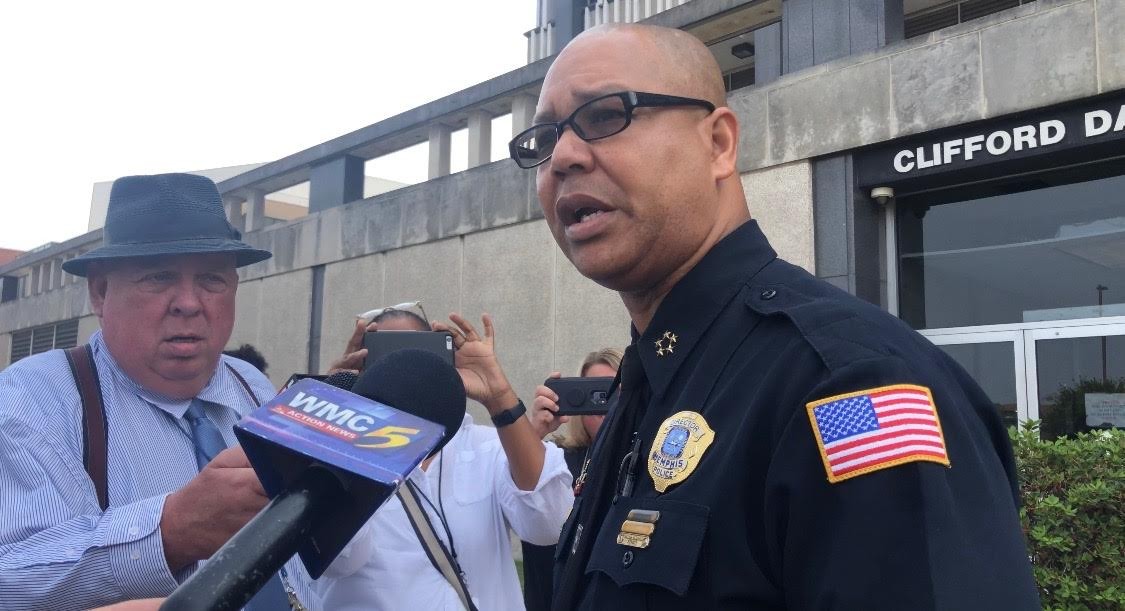
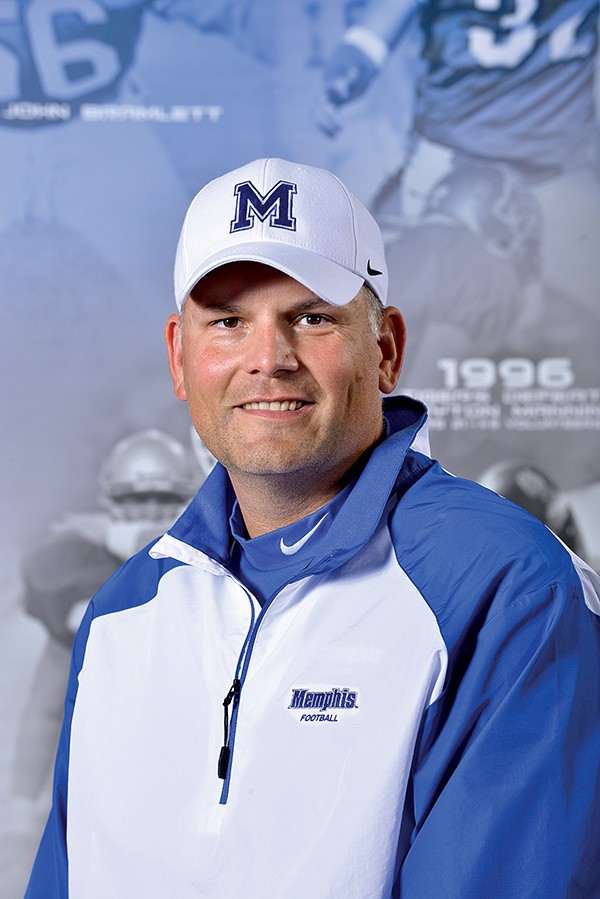 Larry Kuzniewski
Larry Kuzniewski